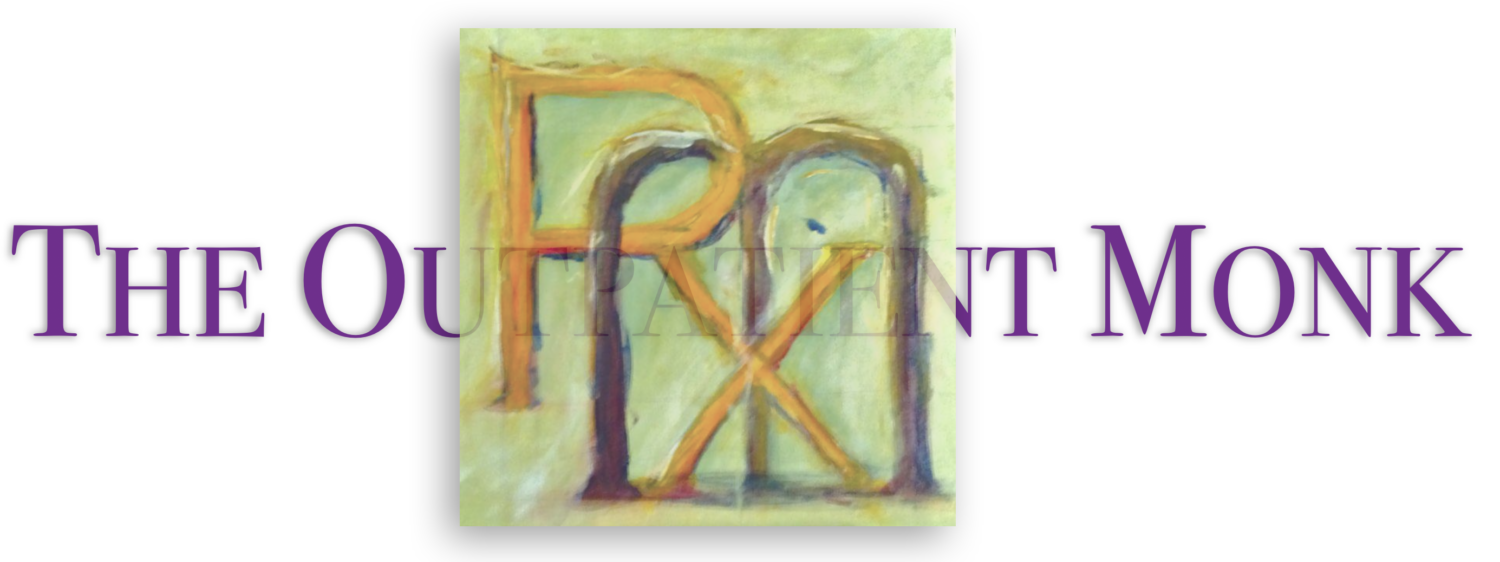 There are very few vices I have encountered as much in my own life – and in the lives of the people I have listened to and prayed with – as much as I have encountered resentment. What other of my own shortcomings have I nurtured and even protected like I do my grudges? Ever hear of anyone harboring gluttony or greed? Resentment seems to hold a very precious place in a lot of our lives and after a few years of trying to deal with it personally I think I have finally begun to understand why: It is delicious.
There are very few vices I have encountered as much in my own life – and in the lives of the people I have listened to and prayed with – as much as I have encountered resentment. What other of my own shortcomings have I nurtured and even protected like I do my grudges? Ever hear of anyone harboring gluttony or greed? Resentment seems to hold a very precious place in a lot of our lives and after a few years of trying to deal with it personally I think I have finally begun to understand why: It is delicious.
When everything seems to have gone pear shaped and everyone else is apparently undeservedly going home with all the marbles I so desperately want, I find I can always turn to internal bitterness to try to keep my internal scales of justice calibrated. “It is just not right!” I love to declare, ” I can’t believe what the world is coming to!”
Consider just how you felt (and how you responded) after the last election, …or the one before that. Take your pick. What did you tell yourself about the unfavorable aspects of the election? Rarely, if ever, does anyone pause to critically self-e valuate in light of the results and ask themselves, “how am I not seeing other people’s perspectives more clearly?” Resentment seems to me to be the most effective way of assuring ourselves the rest of the world is wrong when things don’t go our way. It drives us more deeply into our own convictions, and more importantly, into our own sense of entitlement.
valuate in light of the results and ask themselves, “how am I not seeing other people’s perspectives more clearly?” Resentment seems to me to be the most effective way of assuring ourselves the rest of the world is wrong when things don’t go our way. It drives us more deeply into our own convictions, and more importantly, into our own sense of entitlement.
This is how resentment sucks the life out of our faith and rots our spiritual lives like a forgotten potato that has gone bad in the back of the pantry. Few things have the power to really keep us from honesty, empathy and self evaluation like bitterness can. It keeps us turned inward and plugs our ears so that we can’t ever really hear each other, or our callings…and especially God.
The number one shared trait of my friends who “used to be Christian,” is without a doubt resentment. It’s not without cause and there are certainly exceptions to that, but it is by far the clearest commonality. I can say the same about those who still call themselves Christians but seem to be compelled to rap the world’s knuckles with a wooden ruler till the universe looks just like they think it should look or to tighten their terrified fists around the lives of people who are increasingly strangers to them in a world that is changing faster than they can keep up with.

We love to harbor resentment, because it also harbors us. It perpetuates the myth of our infallibility and entitlement so we never have to face the possibility we need to change.
But resentment also paralyzes us. It lashes us to the mast of our dead and dying dreams rather than launching us, as faith does, into the nomadic life of hope and love.
It is hard to harbor both resentment and love, hard to nurture our entitlements and still trust others, isn’t it? It is hard to feel as if we have been denied something and still be inspired to be generous. If the life of faith is one of listening, giving and following, the life of resentment is one of dismissing, hoarding and eventually hiding.
God wants more for us than that.
So what are we to do about it? Like many of the other deepest habits of the heart, I don’t think our resentments can be transformed by our will power alone. Resentment is too deep and complex to merely give it up for lent, or even cut back on it much like its caffeine, red meat or refined sugar. What can be done with the bitterness that plays such a key role in keeping us in our place hiding out the false hope of being vindicated?
 What we can do, is pray. We can lift it up. We can let the resentment itself be our prayer.
What we can do, is pray. We can lift it up. We can let the resentment itself be our prayer.
Offering ourselves, or in this case, some part of ourselves, no matter how bleak and meager of a gift it may seem, is a prayer I have never known God to refuse.
Rather than pushing our anger down or comically trying to sweep our malice under the proverbial rug, we can let it be exactly what it is and offer it to the one who is not at all unfamiliar with it. That is the nature of grace. It is grace that moves us, to see others as God sees them and and to be capable of imagining living with better hope than just the karmic retribution we would really love to see rained down on our enemies.
God helps those of us who cannot help themselves. Isn’t that a relief?
I know there are times in my life that I get so miffed, I feel so bitter and my resentment is so pervasive, that it would hardly make sense for me to pray with anything else. Pray with what you have, is what I have learned, and what I think the Psalms have been trying to teach me. If the malice is this pervasive in me, praying any other way can be, well, dishonest.
Anyone who has read many of the Psalms will tell you how they can be, ahem, blunt. At times the psalmists seem to be asking God to do things that just don’t seem very Christian. But after praying them over and over for a few years I begin to get the sense that that is at least part of the point of the Psalms. The more I hand my stuff over to God, whatever it may be, and the more I put my requests in God hands, the more I seem to be able to get back to the business of loving my neighbor, which, as unfair as that may seem, is when I am my happiest.
Perhaps this is what Jesus was hoping for us when he told Christians to love our enemies and pray for those who persecute us. I don’t think he meant for us to make the kind of laundry lists we make for ourselves and just switch out the names for those who are out to hurt us:
“Dear lord, please give terrorists a great parking space and help them get into their college of choice.”
“Lord in heaven, please give ISIS/Palestine/Republicans/Democrats/Congress wonderful… weather?”
No, That’s ridiculous. I think it does mean that when we have legitimate fears about others, who apparently are equally as fearful of us, we can hold that fear up to the loving light of God who might be able to imagine the possibilities of everyone thriving, everyone getting what they need, everyone flourishing in their God given capacity to love, even and especially if it means we might have to change first.
We harbor resentment and it also harbors us, giving us a false sense of safety but also imprisoning us and keeping us focused on everything that didn’t go our way. This year during Lent, let’s consider simply offering our resentments to God whose love for us can still turn a heart of stone into a heart of flesh. No matter how great our sense of injustice, no matter how stuck we are and even when our hearts condemn us, there is always the possibility that because of the love of God, we can still be moved.
Read also:
Sit with the Surprises: How finding out you are wrong can bring great hope

Thank you for posting this. I’m wrestling with anger at a friend, and I think I needed to read something like this this week.
Thank you!
Thanks for sharing this with us. I will offer my “psalm” lifting up my resentments towards those with whom I disagree politically
Perhaps it will accomplish more than yelling back at letters to the editor.